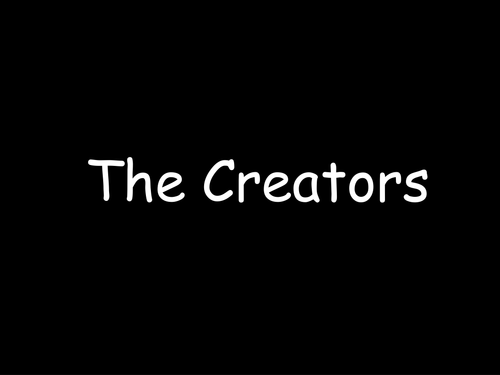

































A fully-resourced 6 week scheme of lessons for Key Stage 3 (based on 4 lessons a week at 50 minutes/ 1 hour each).
I created this scheme for my Year 7 class, but have also taught it across Year's 8 and 9. It remains the most popular unit I teach amongst pupils, and provides and overview of Greek mythology and ideas designed to increase their cultural capital. I assessed this unit through a spoken language presentation, but it would also lend itself to reading or writing assessments.
Resources included:
- Overview of the order of teaching
- Printable copies of all myths: Uranus and Gaea, Zeus and Kronos, Prometheus, Pandora, Persephone, Sisyphus, Tantalus, Oedipus, Midas, Narcissus and Echo and Odysseus.
- Powerpoints for all 15 lessons - some of which are double lessons. Each lesson starts with a SPaG task that recaps previous learning, and ends with a philosophical question for discussion. Various activities accompany each of the key myths and links are made to any relevant vocabulary - e.g. Narcissistic from the Narcissus and Echo myth.
- Ultimate mythology quiz, which covers all the content from the unit.
- Suggested homework: research project on a God or Goddess. Included is a PowerPoint images of all the Gods, Goddesses and creatures mentioned, that you can show pupils to get them excited for their project, as well as an example student presentation.
Key Topics:
- The purpose of mythology/ the creation myth
- Archetypes
- Empathy
- Morality and immorality
- Crime and punishment
- The Oracle, fate and prophecy
- Literary allusions (linked to Shakespeare's 'Romeo and Juliet')
- Heroism (including the tragic hero)
I loved teaching this scheme and hope you will too! If you have any questions (e.g. if Greek mythology is a new topic for you), then feel free to contact me on twitter @MissGOToole and I will be more than happy to discuss with you. :)
I created this scheme for my Year 7 class, but have also taught it across Year's 8 and 9. It remains the most popular unit I teach amongst pupils, and provides and overview of Greek mythology and ideas designed to increase their cultural capital. I assessed this unit through a spoken language presentation, but it would also lend itself to reading or writing assessments.
Resources included:
- Overview of the order of teaching
- Printable copies of all myths: Uranus and Gaea, Zeus and Kronos, Prometheus, Pandora, Persephone, Sisyphus, Tantalus, Oedipus, Midas, Narcissus and Echo and Odysseus.
- Powerpoints for all 15 lessons - some of which are double lessons. Each lesson starts with a SPaG task that recaps previous learning, and ends with a philosophical question for discussion. Various activities accompany each of the key myths and links are made to any relevant vocabulary - e.g. Narcissistic from the Narcissus and Echo myth.
- Ultimate mythology quiz, which covers all the content from the unit.
- Suggested homework: research project on a God or Goddess. Included is a PowerPoint images of all the Gods, Goddesses and creatures mentioned, that you can show pupils to get them excited for their project, as well as an example student presentation.
Key Topics:
- The purpose of mythology/ the creation myth
- Archetypes
- Empathy
- Morality and immorality
- Crime and punishment
- The Oracle, fate and prophecy
- Literary allusions (linked to Shakespeare's 'Romeo and Juliet')
- Heroism (including the tragic hero)
I loved teaching this scheme and hope you will too! If you have any questions (e.g. if Greek mythology is a new topic for you), then feel free to contact me on twitter @MissGOToole and I will be more than happy to discuss with you. :)
Something went wrong, please try again later.
A useful resource however, feel a little over priced for the content
Report this resourceto let us know if it violates our terms and conditions.
Our customer service team will review your report and will be in touch.
£20.00